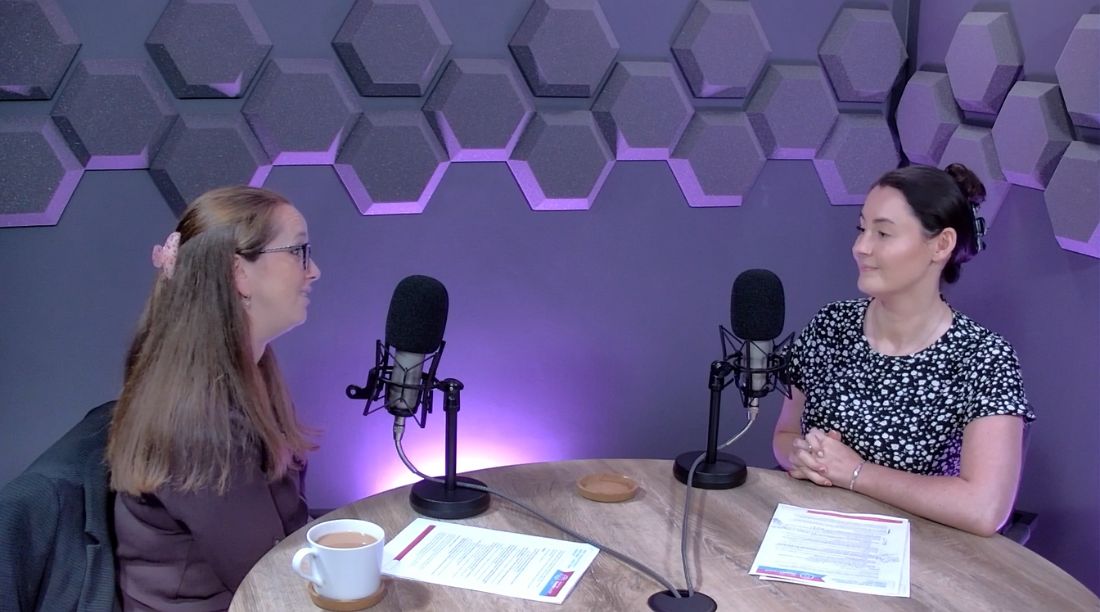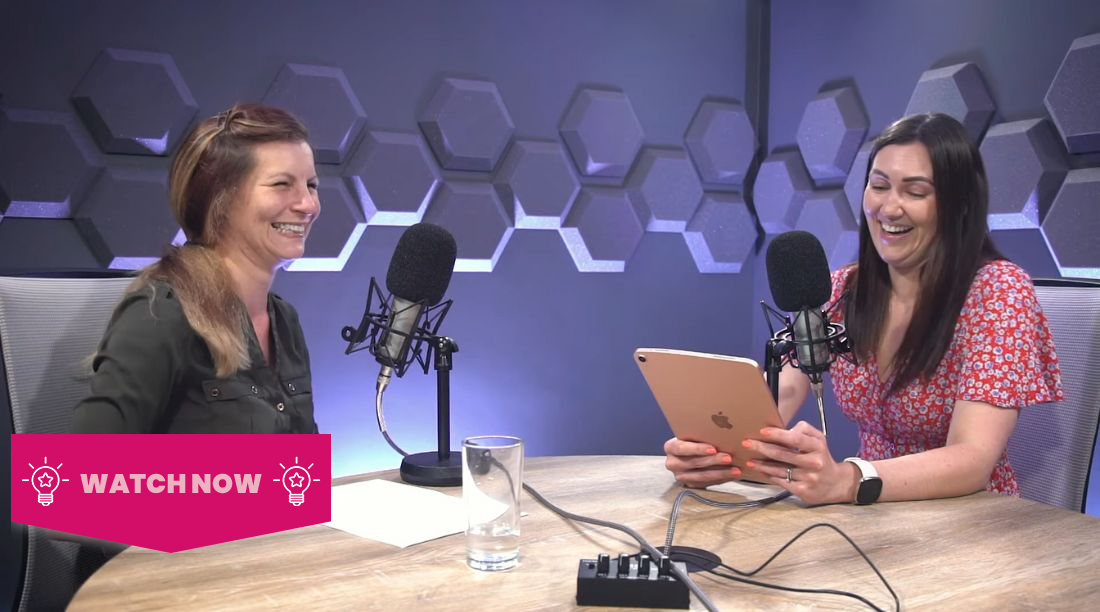Mastering Supplier Relationships for Strategic Advantage: Insights from Radar Healthcare’s Podcast on Building Lasting Partnerships
Tags:
Unlocking the Secrets to Strong, Collaborative Supplier Relationships
When it comes to mastering supplier relationships, building trust and prioritising collaboration can make all the difference. Recently, our Chief Partnerships Officer, Rhian Bulmer, shared her expert insights on The Caring View’s podcast, hosted by Mark Topps and Adam Purnell.
Covering key strategies like regular reviews, open communication, and data-driven decision-making, the conversation provided actionable tips for those seeking to build more strategic, resilient partnerships. Adam, a Radar Healthcare customer, also spoke about his experience and highlighted Radar Healthcare’s commitment to supporting their partners’ evolving needs.
Here, we dive into the essential takeaways, revealing how to elevate supplier relationships into collaborative, strategic assets.
"In social care today, there are so many suppliers available that it’s easy to switch from one to another, especially for smaller companies that don’t have to go through a lengthy procurement process. This makes strong relationships absolutely essential for standing out and making a real impact."

Why Strong Supplier Relationships Are Essential for Business Success
In an increasingly saturated market, maintaining strong supplier relationships is more critical than ever. As Rhian explained, at Radar Healthcare, “every customer is a partner” – an ethos that underpins the company’s people-centered values and helps set it apart in a crowded field. Without strong, reliable relationships, businesses struggle to meet customer needs and lose their competitive edge.
Given that many tech providers claim their product is the best in the market or the latest cutting-edge innovation, it’s important for companies to go beyond the technology itself and focus on the relationship. A supplier should work closely with their customers, understanding their unique challenges and operational needs to truly offer value. By positioning themselves as collaborative partners rather than mere providers, suppliers can foster trust and deliver greater impact.
"Technology should always be secondary and complementary to your business needs and goals. It’s there to support you, solve problems, and serve as a tool tailored to operational demands—not chosen before you’ve considered its purpose. It’s not about implementing the latest tech; it’s about implementing the right tech. Otherwise; it just becomes another forgotten login."

Pre-Sale and Procurement: Strategies for Evaluating Suppliers Effectively
In the early stages of selecting a supplier, Rhian emphasised the importance of clarifying your organisation’s needs first. Before getting swayed by the latest tech solutions, companies should start with a clear problem statement.
Instead of asking, “What can this technology do?” the question should be, “How can this technology help solve our specific problems?” This approach allows organisations to keep the focus on their goals and avoid getting sidetracked by unnecessary features.
▶️ Watch this clip where Oliver from Horizon Care and Education Group shares his experience and insights on implementing Radar Healthcare effectively…
"Doing thorough research is so important... Every organisation is unique, and what works for one may not work for another. I urge people to invest their time in research and scoping beforehand."

Key Factors to Consider When Researching Potential Suppliers
To make the best decision, it’s essential to dedicate time and resources to thoroughly researching potential suppliers. The session noted that while this may seem like a time-intensive process, it is far more beneficial in the long run than implementing the wrong solution.
In addition, Rhian advises evaluating a range of different business areas to get the full scope of an organisation’s customer service, culture, and ethos. For instance,
✅ The configurability of the solution – can this solution grow with me?
🗺️ Reviewing the supplier’s product roadmap to ensure they are equipped to meet evolving needs. Are they innovative software suppliers and willing to listen and adapt?
🌟 Understand the company’s culture and their values. Do they align with your own values?
💬 What are their employees saying about the organisation?
📊 Get a better view of the customer culture by asking for a copy of their latest survey or Net Promoter Score (NPS) results.
📜 What are their policies?
👥 Who sits on their executive board and what is their experience within the industry?"Don’t put a system in place just for the sake of it! Start with a team consultation to understand the actual problems and consider if there’s anything that can be done internally before investing in a tech solution. It’s about having the confidence to identify the problem clearly, define what needs to happen, and then find the right solution—whether it’s tech-based or not."

Risk Mitigation: Communication and Implementation Strategies
Risks throughout this process are unfortunately inevitable, but effective supplier relationships can help reduce them. The procurement process, Rhian states, is almost like an exam section for suppliers, who are essentially trying to get them the highest score, but it is important to have conversations with suppliers before or after this ‘exam stage’ to really understand how the relationship and operational side will work.
Many common risks, such as misunderstandings or unmet expectations, stem from gaps in communication. Both leadership and frontline staff need to be involved from the beginning, ensuring that everyone understands the project’s goals and potential challenges.
Once a supplier is selected, it’s critical to keep the momentum going through proper implementation. Rhian warns that a lot of people take their foot off the gas after choosing a supplier, but early engagement is crucial for getting the system up and running and driving impact as quickly as possible. This is equally important for keeping staff motivated and engaged from day one, sets the foundation for long-term success and helps prevent potential issues later.
Aligning Values and Vision: Why Culture Fit Matters
A strong cultural fit between suppliers and clients is essential, as more organisations today seek to work with partners who align with their values. Rhian highlighted those shared values, particularly regarding sustainability, inclusivity, and transparency, fosters a solid foundation for partnership. “It’s essential to go beyond technical questions and examine the company’s vision, funding, shareholder involvement, and history,” she advised, as this gives you a clear overview of who they are and what they stand for.
Rhian also pointed out the importance of reviewing employee satisfaction on platforms like Glassdoor and asking for Net Promoter Score (NPS) feedback can provide valuable insights into the supplier’s work culture and customer commitment.
In addition to values alignment, organisations increasingly value diversity in their suppliers’ leadership teams and boards. Rhian pointed out that suppliers should showcase not only their technical expertise but also their commitment to promoting diverse voices, gender equality, and environmentally responsible practices.
Mobilising for Success: Establishing Collaborative KPIs
Once a partnership is established, setting collaborative Key Performance Indicators (KPIs) becomes the next priority. Rhian explained that KPIs should reflect both the provider’s return on investment (ROI) goals and the supplier’s ability to adapt their services for maximum impact.
At Radar Healthcare, our customers’ goals are taken very seriously into consideration and integrated into the product roadmap through open dialogue and joint planning as much as possible.
Transparent discussions about expectations help both parties establish realistic, measurable goals. “It’s an investment in time and resources to ensure this solution works for you,” Rhian noted. By creating joint KPIs and understanding why you’re implementing this particular solution, providers and suppliers can move forward more efficiently, with shared goals that strengthen the relationship and streamline project milestones.
The Role of Ongoing Support and Communication in Lasting Partnerships
The best supplier relationships are those that prioritise regular, proactive communication. Rhian emphasised that continuous check-ins, feedback loops, and support are vital to building strong, lasting partnerships. “We understand that engaging with software providers isn’t a core part of people’s day jobs,” she said. Regular check-ins paired with larger and more in-depth quarterly or annual conversations allow clients to address evolving needs and maximise the software’s impact and address any pain points.
Adam Purnell echoed these sentiments, noting the strength of his relationship with Radar Healthcare: “From day one, my relationship with Radar Healthcare has been consistently strong. I have regular check-ins with my project manager, and over time, we’ve built a solid partnership. While we’ve encountered occasional challenges with the system, the support and commitment from Radar Healthcare have not only remained steady but have exceeded expectations. They continuously ask, ‘How can we support you? What do you need it to do?’—and they truly listen. Out of all the software providers we work with, this relationship stands out as the strongest. It’s a partnership that has only grown stronger over time.”
Adopting a partnership-driven approach has allowed Radar Healthcare to prioritise and meet specific customer needs, fostering a collaborative environment where clients feel valued and heard.
The episode goes on to discuss Radar Healthcare’s commitment to gathering user feedback through community suggestions, workshops, and BETA testing further underscores their dedication to client success. This process not only drives product innovation but also reinforces trust by incorporating user perspectives directly into the product development process.
Conclusion
As the discussion highlighted, strong supplier relationships are crucial for achieving long-term strategic advantage. When clients and suppliers engage in open communication, align on values, and set collaborative KPIs, they build a foundation that goes beyond basic transactions.
With the right strategies, organisations can transform supplier relationships into partnerships that support mutual growth and success. Whether it’s through regular feedback, transparent communication, or value alignment, Radar Healthcare’s approach serves as a model for cultivating partnerships that thrive. By prioritising these principles, businesses can unlock the full potential of their supplier relationships and foster resilient, impactful alliances.
▶️For those looking to enhance their supplier relationships, consider tuning into The Caring View podcast episode for practical insights and strategies that can help you build stronger, more strategic partnerships.









